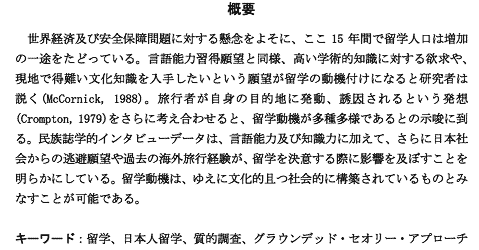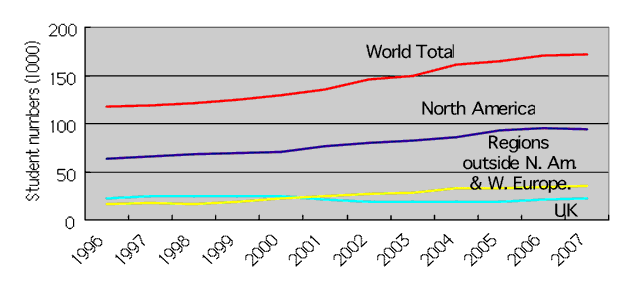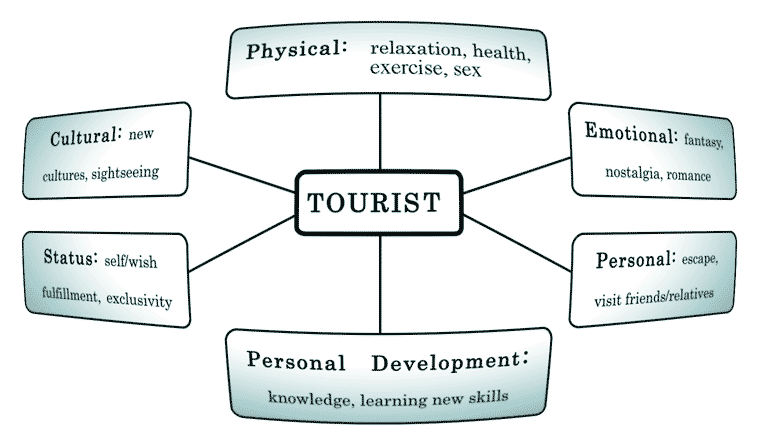May 23 - 24, 2009. Chiba, Japan: Toyo Gakuen University, Nagareyama Campu. (pp. 26 - 44)
Socio-cultural motivations for study abroad
by David Williams (Yokohama City University)
|
| Abstract |
|
Despite global economic and security concerns, study abroad (or ryugaku) maintains widespread popularity amongst Japanese students.
As well as language skills acquisition, research indicates students are motivated to participate in ryugaku from a desire to advance
academic knowledge and gain locally unobtainable cultural information (McCornick, 1988). Crompton, (1979, p. 410) suggests motivations
for ryugaku are considerable and that travelers are "pushed" and "pulled" to destinations. Based on ethnographic interview data from
eight Japanese graduate and undergraduate students residing in the U.K. for 3 - 36 months, the results suggest that in addition to
language and knowledge skills, a desire to escape Japanese society, and previous overseas experience influence students' ryugaku
decisions. ryugaku can thus be viewed as a cultural and social construct. Keywords: study abroad, ryugaku, Japanese overseas study, qualitative research, grounded theory research  |


